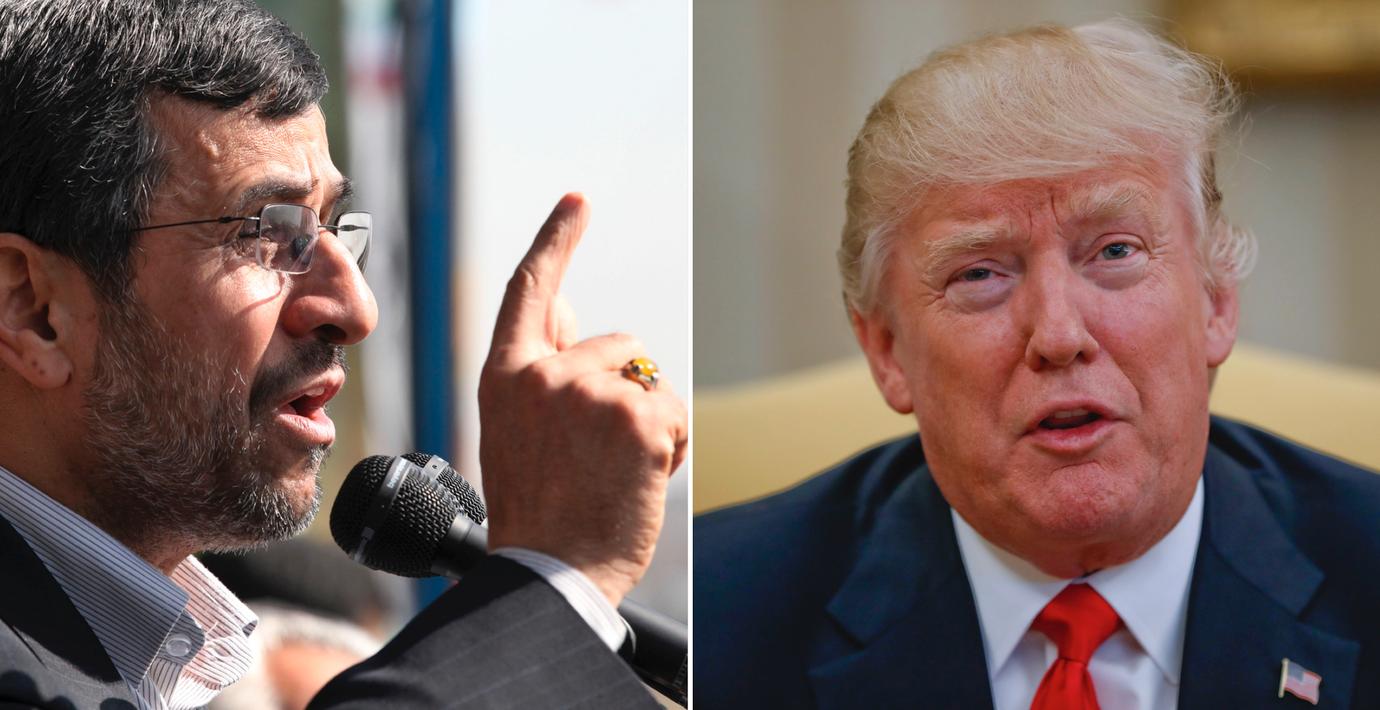
Irans ex-ledare läxar upp Trump för hans kvinnosyn
Irans tidigare president Mahmoud Ahmadinejad inskärper i ett öppet brev för den amerikanske presidenten Donald Trump vikten av att respektera kvinnor. Det rapporterar AFP.
”Historiens stora män har visat den största respekt mot kvinnor och erkänt deras gudagivna förmågor”, skriver Ahmadinejad i brevet.
I ett uppmärksammat filmklipp som publicerades i amerikansk media innan presidentvalet i USA sa Trump att han kan göra vad han vill med kvinnor, som att ”ta dem på fittan.”
Ahmadinejads brev innehåller även kritik mot Trumps försök att införa ett inreseförbud för medborgare i sju i huvudsak muslimska länder, däribland Iran. Ahmadinejad hyllar dock Trumps antietablissemangsretorik.
bakgrund
Mahmoud Ahmadinejad
Wikipedia (en)
Mahmoud Ahmadinejad (Persian: محمود احمدینژاد, translit. Mahmūd Ahmadinezhād [mæhmuːd(-e) æhmædiːneʒɒːd], born Mahmoud Sabbaghian (Persian: صباغیان, translit. Sabbāghyān) on 28 October 1956) is an Iranian politician who was the sixth President of Iran from 2005 to 2013. He was also the main political leader of the Alliance of Builders of Islamic Iran, a coalition of conservative political groups in the country.
An engineer and teacher from a poor background, Ahmadinejad joined the Office for Strengthening Unity after the Iranian Revolution. Appointed a provincial governor, he was removed after the election of President Mohammad Khatami and returned to teaching. Tehran's council elected him mayor in 2003. He took a religious hard line, reversing reforms of previous moderate mayors. His 2005 presidential campaign, supported by the Alliance of Builders of Islamic Iran, garnered 62% of the runoff election votes, and he became President on 3 August 2005.
During his presidency, Ahmadinejad was viewed as a controversial figure within Iran, as well as internationally. He has been criticized domestically for his economic policies and disregard for human rights. Internationally, he is criticized for his hostility towards some countries, most notably Saudi Arabia, Israel, the United Kingdom, and the United States and other Western and Arab nations. In 2007, Ahmadinejad introduced a gas rationing plan to reduce the country's fuel consumption, and cut the interest rates that private and public banking facilities could charge. He supports Iran's nuclear program. His election to a second term in 2009 was widely disputed and caused widespread protests domestically and drew significant international criticism.
During his second term, Ahmadinejad came under fire not only from reformers but also traditionalists in parliament and the Revolutionary Guard, and even from Supreme Leader Ali Khamenei, over accusations of corruption, Ahmadinejad's dismissal of Intelligence minister Gholam-Hossein Mohseni-Eje'i, and his support for his controversial close adviser Esfandiar Rahim Mashaei. On 14 March 2012, Ahmadinejad became the first president of the Islamic Republic of Iran to be summoned by the Islamic Consultative Assembly (parliament) to answer questions regarding his presidency. Limited to two terms under the current Iranian constitution, Ahmadinejad supported Esfandiar Rahim Mashaei's campaign for president. On 15 June 2013, Hassan Rouhani was elected as Ahmadinejad's successor and assumed office on 3 August 2013.
Omni är politiskt obundna och oberoende. Vi strävar efter att ge fler perspektiv på nyheterna. Har du frågor eller synpunkter kring vår rapportering? Kontakta redaktionen